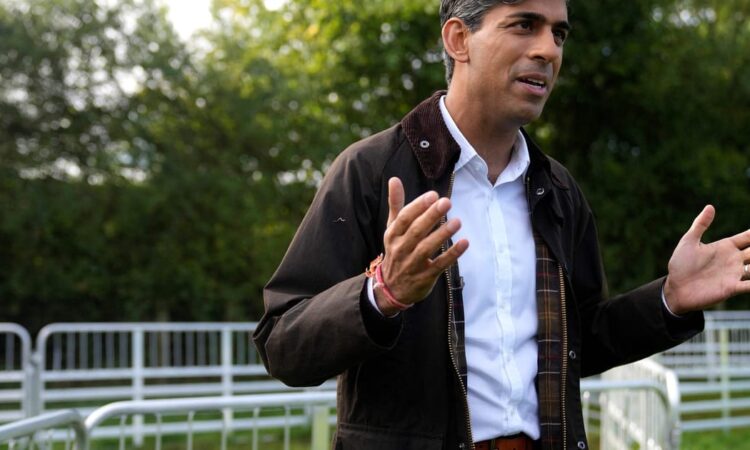
LONDON — Don’t speak too soon, but Rishi Sunak might just have a good story to tell on the British economy.
As the Bank of England moved Thursday to halt interest rate rises after fourteen successive lifts in the cost of borrowing, it capped a better-than-expected week of news on key measures that matter to the British prime minister’s re-election chances.
The BoE’s nine-strong Monetary Policy Committee voted 5-4 in favor of pausing its tightening cycle, keeping its key lending rate unchanged at 5.25 percent. Despite that, it repeated that further rate hikes may still be necessary if inflation turns out stronger than currently expected.
But the move suggests the independent central Bank — which has a mandate to get inflation down to 2 percent — sees an end in sight to Britain’s protracted cost-of-living crunch, likely to be the defining issue of an election expected next year.
Reacting to the news Thursday, Chancellor Jeremy Hunt — Sunak’s top finance minister — said: “We are starting to see the tide turn against high inflation, but we will continue to do what we can to help households struggling with mortgage payments.”
‘Plan is working’
The Bank’s move came a day after better-than-expected data on the cost of living offered a surprise boost to Sunak and Hunt, whose party is trailing in the polls.
The consumer price index rose only 0.3 percent from July, the figures show, rather than the 0.7 rise expected. That brought the headline rate of inflation down to 6.7 percent from 6.8 percent the previous month. Ahead of the figures, Hunt himself had said he expected the U.K. to experience a “blip” increase in inflation.
And on Thursday morning, data showed public sector borrowing lower than officially forecast in August. Public sector borrowing sat at £11.6bn last month, according to the Office for National Statisitics.
That’s some £3.5bn more than a year ago and still high by historic standards — but below the £13bn forecast by the U.K.‘s public finance watchdog. It indicates a welcome boost to government coffers ahead of Hunt’s next fiscal statement, due on November 22, and may encourage Tory MPs to press him for pre-election giveaways to try and convince wavering voters.
Sunak — fighting to regain the Conservative Party’s reputation for economic competence after it cycled through three prime ministers in a year — has set halving inflation and reducing debt as key pledges on which he hopes to be judged next year. Sunak told the BBC Thursday morning that this week’s inflation news showed his “plan is working. We have got to stick to the plan to bring inflation down.”
But the opposition Labour Party is betting that voters will judge the government’s record over the longer-term, and won’t soon forget a chaotic budget under Sunak’s short-lived predecessor Liz Truss.
Hammering that point home, Shadow Chancellor Rachel Reeves said Thursday lunchtime: “Britain has been left worse off after thirteen years of economic chaos and instability under the Conservatives.”
She added: “Households coming off fixed rate mortgages will be paying an average of £220 more a month and inflation remains high because of the Conservatives’ disastrous mini-budget.”





